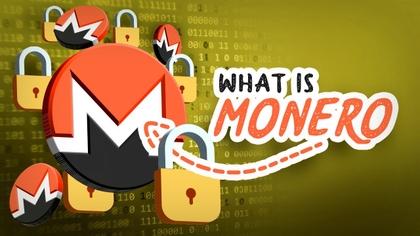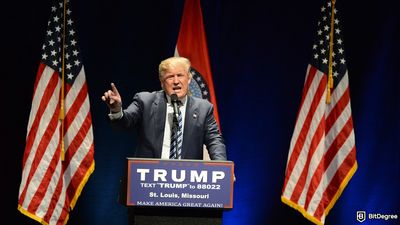India’s fiat-based peer-to-peer (P2P) payment system dubbed UPI is far simpler compared to blockchain technology, according to Sankar.
The Deputy Governor of the Reserve Bank of India (RBI) Rabi Sankar took an anti-crypto position while discussing India’s ability to impact crypto and blockchain technology during the International Monetary Fund (IMF). He added that stablecoins shouldn’t be accepted as 1:1 fiat-pegged cryptocurrencies.
“We believe that central bank digital currencies (CBDCs) could actually be able to kill whatever little case that could be for private cryptocurrencies.”

Did you know?
Want to get smarter & wealthier with crypto?
Subscribe - We publish new crypto explainer videos every week!
What is Monero? XMR Animated Explainer


Sankar also suggested that blockchain application cases had not been developed at the rate previously anticipated, unlike India’s payment system dubbed Unified Payments Interface (UPI). While providing differences between the two, Sankar suggested that the latter is so successful because it’s simple. He expanded:
“Blockchain, which was introduced six-eight years before UPI started, even today is being referred to as a potentially revolutionary technology. [Blockchain] use cases haven’t really been established that much at the speed it initially was hoped for.”
Over the last 5 years, UPI has recorded an average adoption and transaction boost of 160%.
However, one of RBI’s officials said that people in the country aren’t able to use the Unified Payments Interface as only a small proportion of citizens own a smartphone. As a workaround, an offline payment platform is supposedly in the works.
On top of that, Sankar mentioned that banks will have a significant role in providing liquidity services to India's residents. However, the Deputy Governor underlined the fact that the technology shouldn’t be held as a means to establish a new currency. He added:
“A currency needs an issuer or it needs intrinsic value. Many cryptocurrencies which are neither are still being accepted at face value. Not just by gullible investors but also the experts, policymakers or academicians.”
Earlier this year, the Deputy Governor of India’s Reserve Bank Rabi Sankar also stated that the country would ban crypto. According to him, digital assets take any power from the government to regulate India’s economy.






















